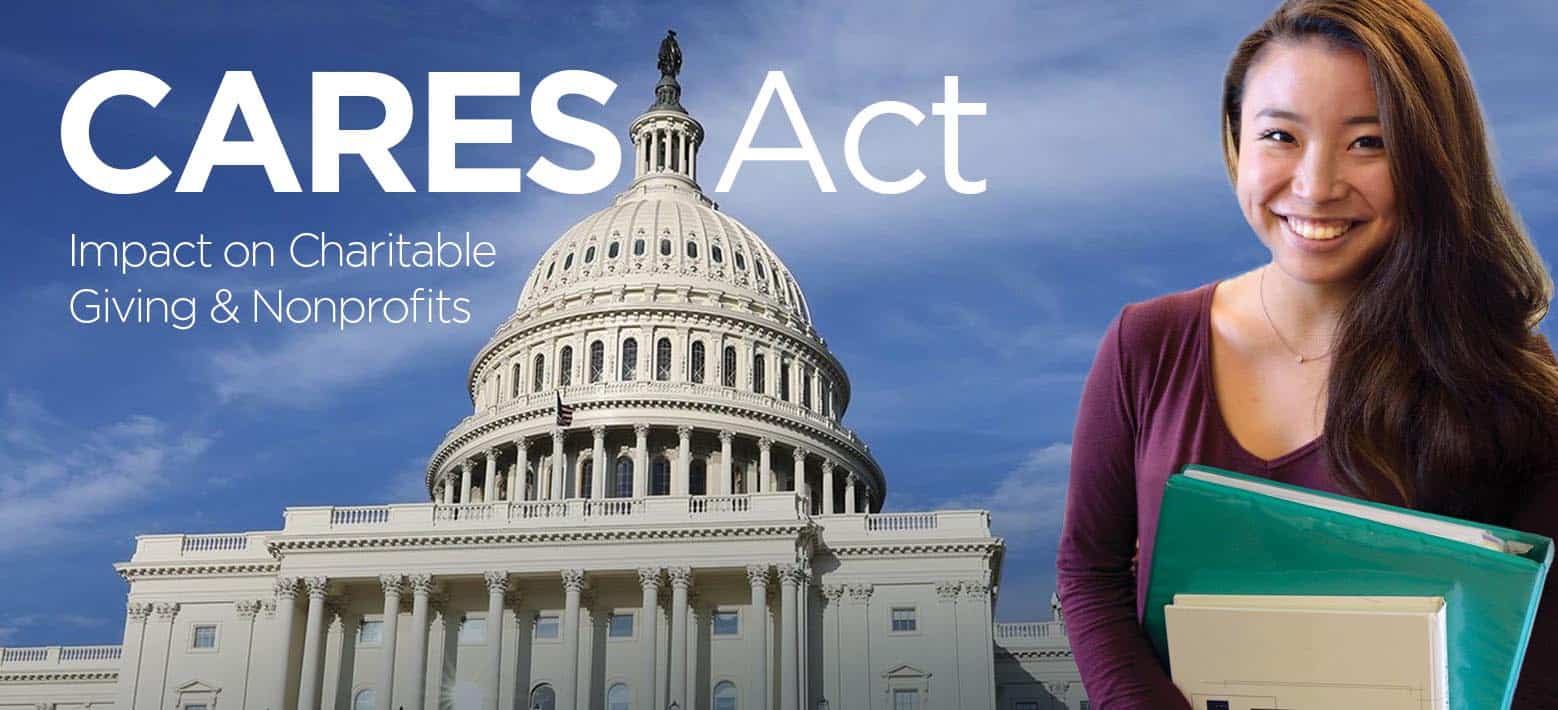In response to the health crisis facing our nation, the Coronavirus Aid, Relief and Economic Security (CARES) Act became law in March of 2020. Most of the reporting surrounding the Act has focused on the economic relief that will be coming to individuals and businesses, but there are provisions contained in the Act that impact charitable giving options for individuals who are interested in supporting NC Wesleyan University during these unprecedented times. If you are considering, below are key takeaways from this new law that could influence 2020 charitable giving decisions.

Ways to support NC Wesleyan during the COVID-19 crisis
Faculty Opportunity Fund
The Faculty Opportunity Fund will provide support for our faculty’s most immediate needs as they transition to the on-line environment.
Bishop S.O.S. Fund
The Support Our Students Fund will provide financial assistance to meet unexpected needs of Wesleyan Students for a wide range of emergency situations.
Wesleyan Fund
The College’s largest source of unrestricted funds to meet pressing needs and priorities such as financial assistance and general operating support.
Donate Now
FAQs
How does the stimulus bill affect me as a tax payer and donor?
The CARES Act created a temporary charitable tax deduction for cash donations of $300 per individual or $600 for joint filers. This deduction is only available to individuals who do not itemize their returns and claim the standard deduction ($12,400 for singles, $18,000 for head of household, $24,800 for married filing jointly). The inclusion of a universal charitable deduction may encourage those who do not itemize to continue their charitable giving in 2020.
For individuals who itemize, the cap on deductions taken for annual contributions has been lifted from 60% to 100% of AGI for cash gifts to public charities in 2020. Any excess can be carried forward for five (5) years. Gifts made to Donor Advised Funds (DAFs) do not qualify for the increased deduction.
How does it affect my Individual Retirement Accounts (IRAs)?
The new law impacts some owners of Individual Retirement Accounts (IRAs) by providing a temporary waiver of Required Minimum Distributions (RMDs). This waiver will allow IRA owners age 72 or older to keep funds in their IRAs and other qualified retirement plans. For individuals who had to take a RMD for tax year 2019 before the April 2020 deadline, that requirement has been waived for the year.
With recent fluctuations in the financial markets, individuals with IRAs should work with their professional advisors to determine the best strategy for giving through their IRAs. For some, keeping the funds in their IRAs until the market rebounds might be the best option. For others, continuing to make tax-free charitable gifts directly from their IRAs may be preferable.
Individuals age 70½ and older can continue to make tax-free charitable gifts directly from their eligible IRAs through Qualified Charitable Distributions (QCDs).
How will this affect my other investments and what are my options?
The new law has created an opportunity for those concerned about their income from investments. Individuals may like to consider charitable gift annuities that offer fixed and guaranteed income or other charitable vehicles that offer income streams. We recommend discussing options with professional advisors or contacting NC Wesleyan’s Gift Planning team.




